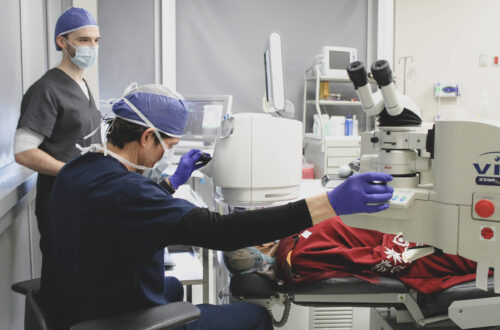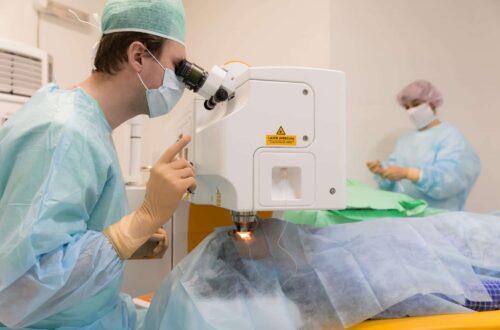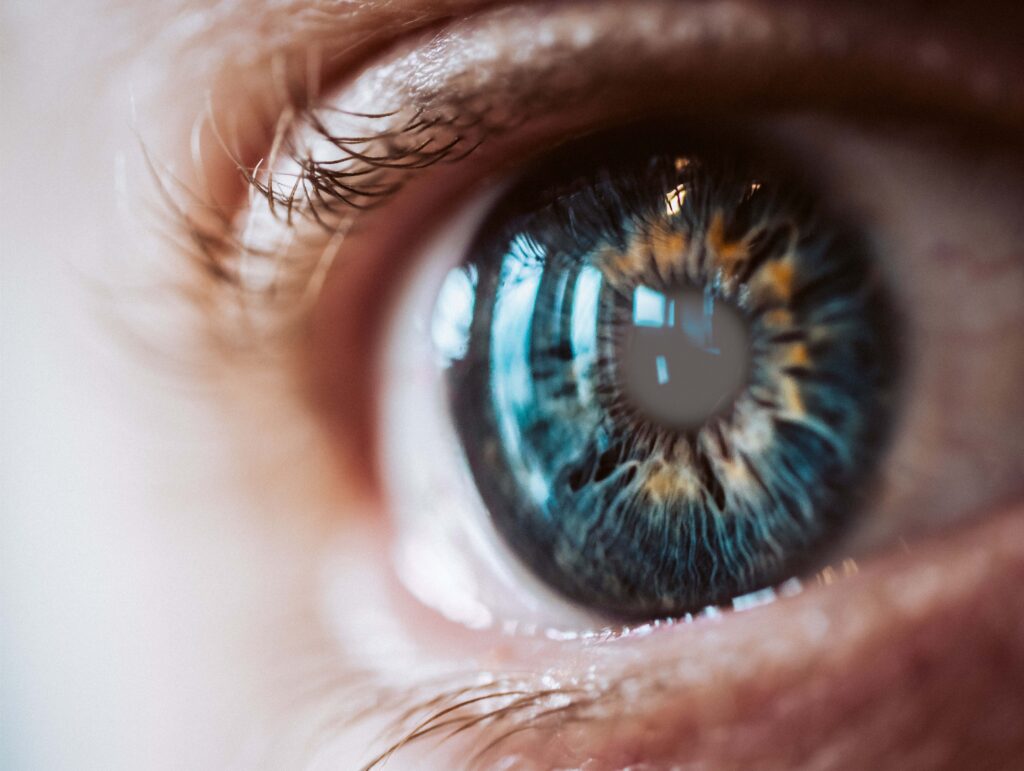
Understanding the Benefits of Cataract Surgery for Clearer Vision
Cataracts are a common eye condition that can affect people as they age. If you or someone you know is experiencing blurry or cloudy vision, it may be due to cataracts. Fortunately, cataract surgery can provide significant benefits and improve your vision. In this article, we’ll dive into the details of cataract surgery, how it affects your vision, the benefits it offers, and what to expect before and after the procedure.
What is Cataract Surgery?
Cataract surgery is a procedure that involves removing the cloudy lens of the eye, known as the cataract, and replacing it with an artificial lens called an intraocular lens (IOL). This surgery is typically performed on an outpatient basis and is considered one of the safest and most effective procedures in modern medicine.
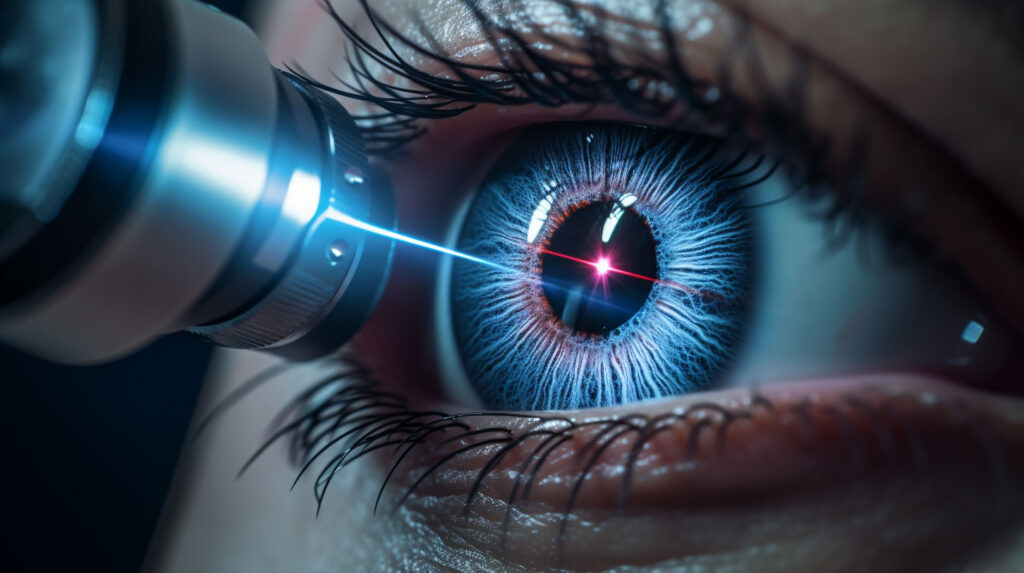
The Science Behind Cataract Surgery
During the surgery, a small incision is made in the eye through which the surgeon inserts tiny instruments to remove the cataract. The cloudy lens is broken up and gently removed, making space for the IOL implantation. The IOL is then carefully positioned in the eye, improving vision by replacing the natural lens with a clear, artificial one.
It is fascinating to note that cataract surgery dates back thousands of years, with evidence of similar procedures being performed as early as the 5th century BC. However, modern cataract surgery has evolved significantly, with advancements in technology and techniques leading to higher success rates and quicker recovery times for patients.
Common Misconceptions About Cataract Surgery
Despite the success and safety of cataract surgery, there are some misconceptions that can cause hesitation or confusion. One common myth is that cataracts must be “ripe” before surgery is possible. This is not true. Cataract surgery can be performed as soon as the visual impairment affects your daily life. Another misconception is that cataract surgery is painful. In reality, the procedure is usually painless due to the use of local anesthesia and sedation.
Another misconception worth addressing is the belief that cataracts can grow back after surgery. Once a cataract is removed and replaced with an IOL, it cannot return. However, some patients may experience clouding of the lens capsule, a condition known as posterior capsule opacification, which can mimic cataract symptoms. This can be easily treated with a quick and painless laser procedure called YAG laser capsulotomy.
The Impact of Cataracts on Vision
Cataracts can significantly impact your vision, making daily activities difficult and reducing your overall quality of life. Understanding how cataracts develop and their symptoms is crucial for seeking timely treatment.
When left untreated, cataracts can progress to the point where they severely limit your ability to see clearly. This can have a profound impact on your independence and safety, as tasks like driving or navigating unfamiliar environments become increasingly challenging. The emotional toll of struggling with vision loss can also lead to feelings of isolation and frustration. Read more about vision loss at https://ophthalmology.pitt.edu/vision-impairment/what-vision-impairment
How Cataracts Develop
Cataracts develop gradually over time as proteins in the natural lens of the eye begin to clump together, causing cloudiness. The exact cause is unknown, but factors such as age, genetics, and exposure to UV radiation can contribute to their development.
As cataracts progress, they can also affect the way you perceive colors, making them appear faded or yellowed. This can impact your ability to appreciate the vibrancy of the world around you, leading to a diminished visual experience. Seeking regular eye examinations can help detect cataracts early on and allow for interventions to preserve your vision.
Symptoms and Effects of Cataracts
Common symptoms of cataracts include blurry vision, sensitivity to light, difficulty seeing at night, and decreased color perception. As cataracts progress, they can lead to visual impairment that affects daily activities like reading, driving, and recognizing faces.
In addition to the physical symptoms, cataracts can also impact your mental well-being. Struggling with compromised vision can increase feelings of anxiety and stress, especially when faced with situations that require clear eyesight. Seeking support from loved ones and healthcare professionals is essential in managing the emotional challenges that may arise alongside cataracts.
The Benefits of Cataract Surgery
Cataract surgery offers numerous benefits that can significantly improve your vision and quality of life.
When considering cataract surgery, it is important to understand that the procedure is one of the most commonly performed surgeries in the world. The success rate of cataract surgery is extremely high, with the vast majority of patients experiencing a significant improvement in their vision post-surgery. This high success rate is a testament to the advanced technology and expertise available in the field of ophthalmology.
Immediate Improvements in Vision
One of the immediate benefits of cataract surgery is improved vision. Many patients notice a significant improvement in clarity and sharpness immediately after the procedure. Colors appear more vibrant, and overall visual acuity is enhanced.
It is important to note that cataract surgery is a quick and relatively painless procedure. Most patients are able to return home the same day as their surgery and resume their normal activities within a few days. The recovery process is typically smooth, with minimal discomfort or side effects.
Long-Term Advantages of Cataract Surgery
Aside from the initial improvement in vision, cataract surgery provides long-term advantages. The artificial lens is designed to be permanent and requires no maintenance or additional surgeries. This means that once the surgery is done, your vision will continue to improve and remain stable over time.
Furthermore, cataract surgery not only improves your vision but can also enhance your overall quality of life. Many patients report feeling more independent and confident after cataract surgery, as they no longer have to rely on glasses or contact lenses to see clearly. The ability to see clearly without visual aids can lead to a greater sense of freedom and enjoyment in daily activities.
Preparing for Cataract Surgery
If you have been diagnosed with cataracts and are considering surgery, it’s important to know what to expect before and after the procedure.
Understanding the process of cataract surgery can help alleviate any anxiety you may have about the procedure. The surgery itself is a relatively quick and painless outpatient procedure that is highly successful in restoring vision. During the surgery, your ophthalmologist will remove the cloudy lens and replace it with a clear artificial lens, improving your vision significantly.
What to Expect Before Surgery
Prior to cataract surgery, your ophthalmologist will conduct a comprehensive eye exam to determine the severity of your cataracts and assess your overall eye health. You will also have the opportunity to discuss any concerns or questions you may have.
It is crucial to inform your ophthalmologist about any medications you are taking, as well as any underlying health conditions you may have. This information will help ensure a smooth and successful surgery and recovery process.
Post-Surgery Care and Recovery
After cataract surgery, it is essential to follow your surgeon’s post-operative instructions for a successful recovery. This typically includes using prescribed eye drops, avoiding strenuous activities, and protecting your eyes from direct sunlight.
It is common to experience some mild discomfort, itching, or fluid discharge in the days following surgery. However, if you experience severe pain, sudden vision changes, or any other concerning symptoms, it is important to contact your surgeon immediately for further evaluation.
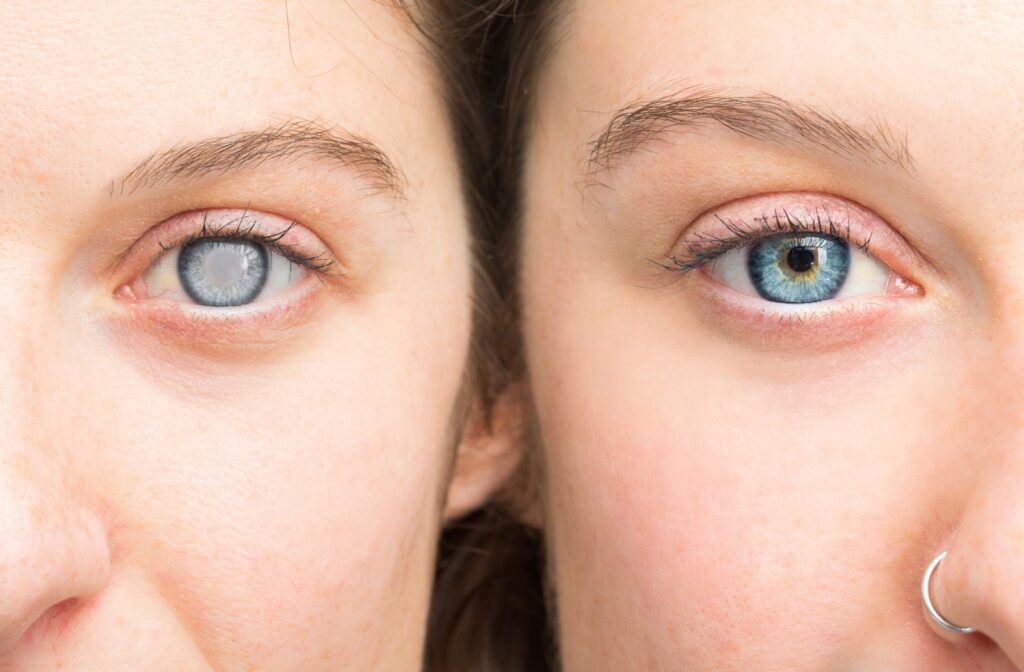
Risks and Considerations of Cataract Surgery
While cataract surgery is generally safe and effective, it is important to be aware of potential risks and complications that may arise.
One important consideration is the possibility of developing a condition known as posterior capsule opacification (PCO) after cataract surgery. PCO can cause a gradual clouding of vision similar to that of a cataract. This condition can typically be treated with a simple laser procedure called YAG laser capsulotomy, which involves creating an opening in the cloudy capsule to restore clear vision. To learn about potential new way to prevent vision loss click here.
Potential Complications and How to Mitigate Them
Although rare, cataract surgery complications can include infection, bleeding, inflammation, or retinal detachment. To reduce the risk of complications, it’s crucial to choose an experienced surgeon, disclose any pre-existing medical conditions, and follow all pre and post-operative instructions.
Another potential risk to consider is the development of a secondary cataract. This can occur when lens cells left behind during cataract surgery begin to multiply on the lens capsule, causing vision to become cloudy again. Fortunately, a secondary cataract can also be easily treated with a YAG laser capsulotomy, allowing light to once again pass through the lens unobstructed.
When to Consider Cataract Surgery
The decision to undergo cataract surgery is ultimately individual. However, if your cataracts are significantly affecting your daily life, impeding your ability to drive, read, or perform other essential tasks, it may be time to consider surgery. Your ophthalmologist can guide you in making an informed decision based on your unique circumstances.
In conclusion, cataract surgery offers numerous benefits in terms of improved vision and quality of life. Understanding the procedure, its impact on vision, and the pre and post-operative care involved will help you make an informed decision. If you have been experiencing vision problems due to cataracts, contact your eye care professional to discuss your options and see if cataract surgery is right for you.
Related : What to Expect Before, During, and After Cataracts Surgery



